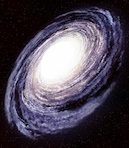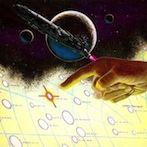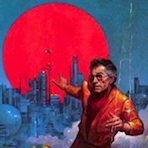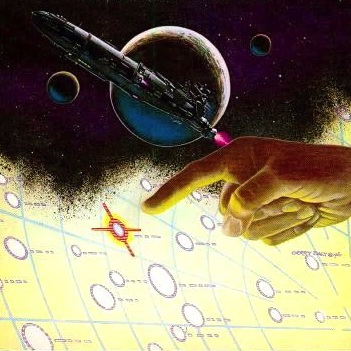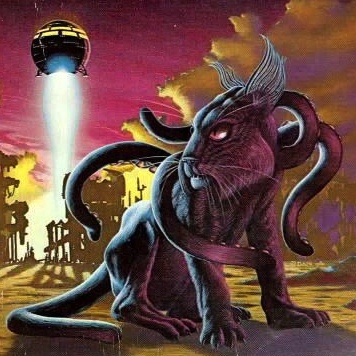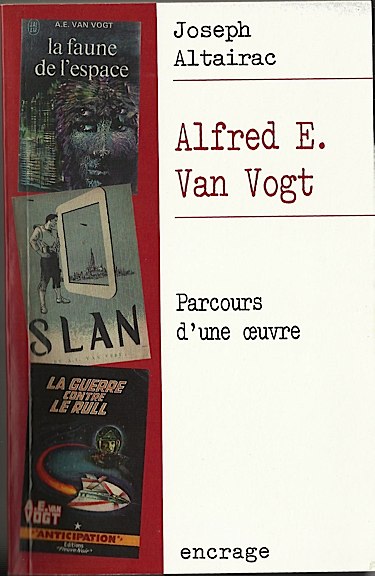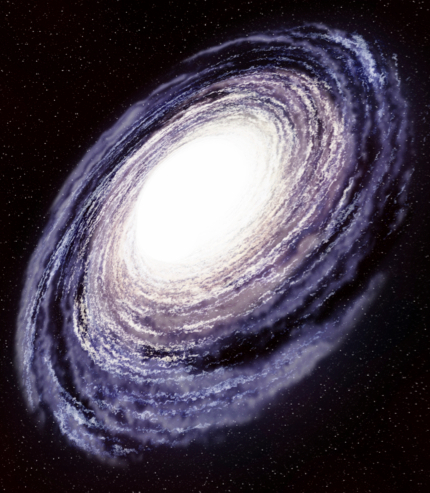Guest reviewer:
Daniele Bitossi
February 15th, 2015
The title of this book, which was published for the first time in 2000, can be translated as A. E. Van Vogt: An Outline of His work. Here, I examine the 2010 edition. It's a slender book (172 pages, of which only 108 represent the main text, but more below). The book is divided in three chapters: Biography, Examination of the main themes of the fiction by Van (titled "Cosmic Illusionist"), and a third one. The biography is based on the two autobiographical chapbooks by Van and the article by Sam Moskowitz. So it doesn't add anything new.
The second chapter is the longest (62 pages) and it is divided in six sections. The first shows van Vogt's various writing techniques. The second is dedicated to the theme of the Superman, with particular regard to the Korzybski theories, treated also in the fourth part. The third, titled "Science in Delirium" alludes to the many pseudosciences endorsed or invented by Van. The fourth speaks of the antitotalitarian books of the late phase of his career (The Mind Cage; Future Glitter; The Anarchist Colossus), and the fifth make reference to his "disciples." Here I disagree: if Dick and Harness are obvious names, Zelazny and Farmer seem to me rather distant from the SF of our Van. The sixth draws some conclusions.
In all, the text is clear and documented, but not particularly original nor impressing. The section on the science is interesting, but the rest...
But the book has its strong points: there are four. The first, and the most amusing, is the hypothesis by Jacques Sadoul and reported in the book, that the real name of Hedrock is...Eldred Crang! The second point consists of two pages of critical interpretation at the end of the Conclusion, which I partly translate here:
He tries to create wonder by accumulating scientific or pseudo-scientific locutions and presenting apparently scientific concepts: the result is an original esthetic experience.
The alleged lack of style is amongst a series of irritating and boring accusations, which are difficult to refuse .
For me, there is surely a vanvogtian style, which we can easily grasp after a few sentences. Furthermore the Knight's criticism of a "dry style" is an important part of van Vogt's technique. The various methods of the vanvogtian writing succeed in obtaining the goal the writer wanted, i.e., surprising the reader for abrupt scene changing and shifting points of view. This forces the reader to provide himself to the lacking of precise descriptions: who reads a van Vogt book must use his imagination at his best. It's an active partnership.
We must insist on the originality of the narrating mode which van Vogt invented: this mode creates an impression of disconcerting strangeness, similar to hypnosis or to dreaming. Many readers admit to not having completely understood any vanvogtian novel, but are, this notwithstanding, truly fascinated. In this case, the holes not filled in the plot create a mysterious and captivating atmosphere in his work. Van Vogt succeeds in making a wide and popular public to read near incomprehensible texts: it's a form of geniality.
I don't pretend this kind of mental manipulation is agreeable for all the readers, but there is a profound satisfaction for the readers who can take part in this mental vertigo! A. E. van Vogt a science fiction master? Surely. But, simply, a poet too.
I don't know if Van was a poet or not, but this seems to me a sound critical appreciation.
The third strong point is the third chapter, titled "Van Vogt in France." It is dedicated to an abstract of all the interpretations of Van's works by the French critics, and they are many. All concur in refusing Knight's articles, which is very good to me.
The fourth and last point is a large commented bibliography of all the narrative works and some nonfiction of our Van, with witty criticism and descriptions (54 pages). Alas, Altairac also likes Quest for the Future, which is for me only a bad way of destroying three very good stories, but perhaps I'm wrong. I liked this bibliography very much.
Summarizing, probably this book is more interesting to the French readers, but I think is still a work to be read. It's not Gramantieri, but...
